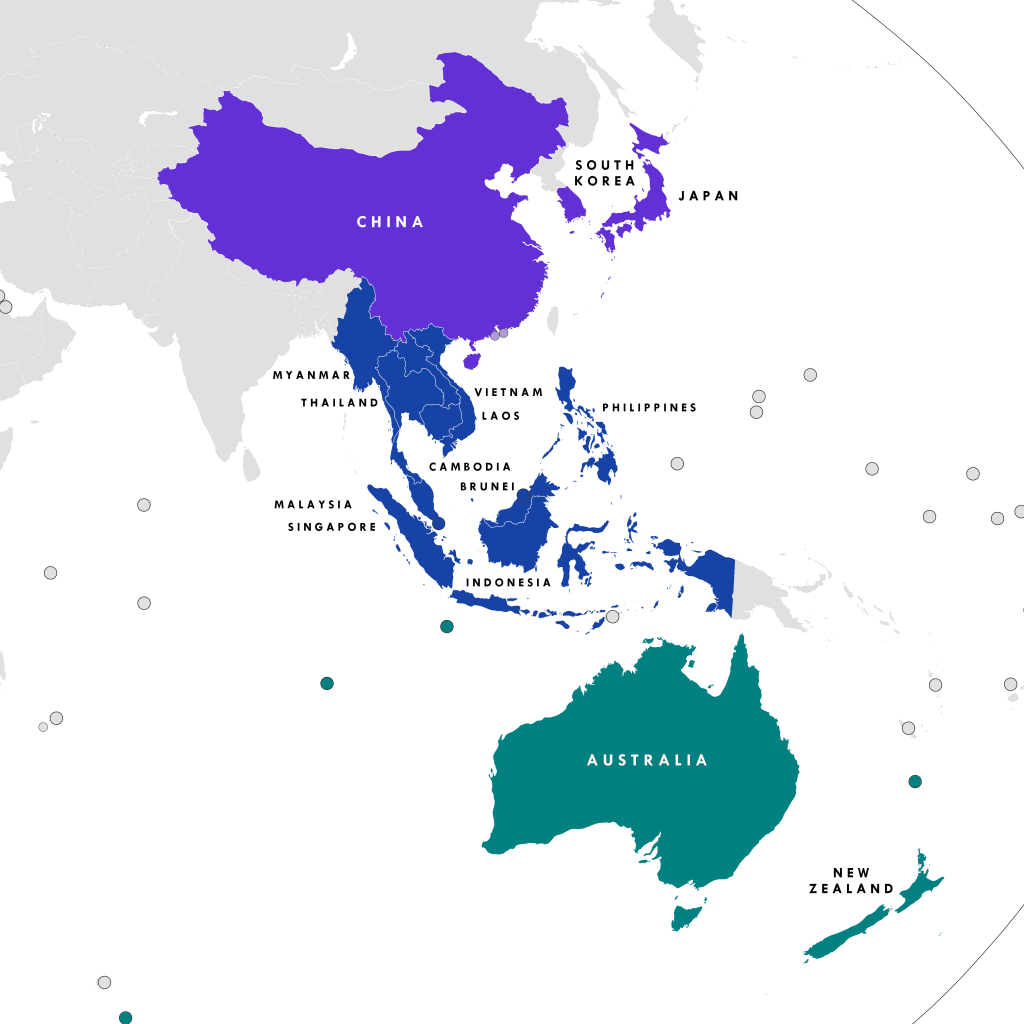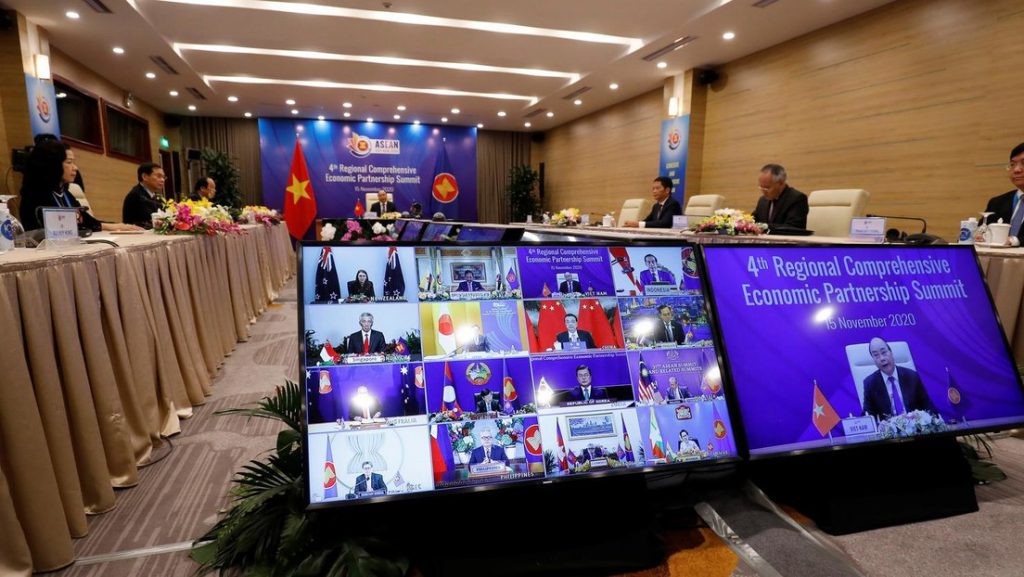On November 15, fifteen Asia-Pacific countries signed an agreement to establish the Regional Comprehensive Economic Partnership (RCEP). Once ratified, possible in 2021, it will create the largest free trade area in the world. The RCEP is a symbol of growing integration in the region, as well as the strengthening of China and the Association of Southeast Asian Nations (ASEAN) in the region and the weakening of US influence. It poses a challenge to the EU in terms of the possibility of reducing its trade with RCEP countries in favor of exchanges between members of the agreement.
Content of the agreement
The agreement aims to eliminate tariffs on about 90% product groups over 20 years. It also introduces common regulations in areas such as competition, services, technical standards, e-commerce, intellectual property or investment. However, the provisions on agriculture are limited, including excluding a number of sensitive products (e.g. rice in the case of Japan) from trade liberalization. The agreement does not provide for common standards on labor rights or environmental protection. This makes it less advanced than the one signed in 2018. Comprehensive and Progressive Transpacific Partnership (CPTTP), which also eliminates more tariffs, as much as on about 99% commodity groups. The RCEP is intended to provide a framework for further negotiations as specific issues become more important to mutual trade.
The importance of the agreement for the EU
The entry into force of the agreement may reduce the competitiveness of EU companies in the markets of RCEP countries, especially those with which the Union does not have a free trade agreement. Thus, part of the EU's trade with signatory states will be redirected in favour of exchange between members of the RCEP. This situation may prompt the EU to intensify talks on trade agreements, among others with Australia, New Zealand and members of ASEAN with which the Union does not have such agreements (e.g. Indonesia or the Philippines), and in the future also with the entire Association. These countries will be encouraged primarily by their access to the large and receptive EU market. Closer regional cooperation also creates opportunities for European companies investing in one of the RCEP countries to gain easier access to other markets covered by the agreement.
The significance of the agreement for the global economy
RCEP will be the largest free trade zone in the world - the countries involved account for about 30% of global GDP and population. The agreement reflects the desire of countries in the region, whose economies are heavily export-led, to reduce protectionism in global trade, exacerbated by the pandemic. Increased trade under RCEP could also boost manufacturing and demand for services in countries outside the agreement, which would have a positive impact on the global economy.
The significance of the agreement for the U.S.
RCEP will also make U.S. companies less competitive in the markets of its member countries. The U.S., which is not a member of either RCEP or CPTPP, will also have less ability to influence trade rules in the Asia-Pacific region. Thus, its political influence in favor of China will be weakened. To strengthen the U.S. position in the region, the new Joe Biden administration may consider joining the CPTPP. The U.S. was already a member (still as TPP) under Barack Obama's government, in which Biden was vice president. However, they withdrew from the agreement at the beginning of Trump's term in 2017. This scenario seems unlikely for the time being due to, among other things, protectionist sentiment in the Democratic Party and Biden's announcement to hold off on trade agreement negotiations until the US economy strengthens after the pandemic.
Additional information
The scenario of India joining the RCEP initiative should be seriously considered. India participated in the process, but withdrew due to the tariff reduction plan being too abrupt according to India, which would have risked flooding the Indian market with PRC goods. This does not mean that India will remain outside the agreement in the near future; on the contrary, there is a good chance that it will join RCEP.
RK




